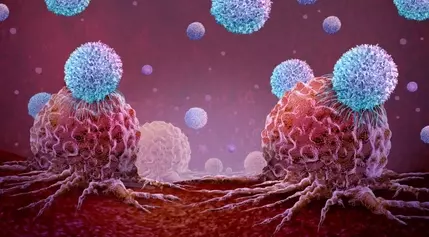The biotech community is reacting to the controversial selection of Robert F. Kennedy Jr., a longtime environmental lawyer and vaccine skeptic, as the nation's new health secretary, leading the Department of Health and Human Services (HHS). The announcement has sent shockwaves through the industry, raising concerns about the potential impact on the sector's future.Navigating Uncharted Waters: Biotech's Reaction to the RFK Jr. Nomination
Concerns over Vaccine Skepticism
The nomination of RFK Jr. as HHS secretary has raised significant concerns within the biotech community. John LaMattina, the former president of Pfizer's global research and development team and a board member of PureTech Health, expressed his bewilderment, stating, "How do you put an anti-vaxxer in charge of HHS? How do you come out of a major pandemic where vaccines save literally millions and millions of lives and now put somebody [like that] in charge of the whole system? … I don't get it."The biotech industry has long been at the forefront of developing life-saving vaccines, and the prospect of having an HHS secretary who is skeptical of their efficacy has left many in the sector deeply unsettled. The industry's reliance on robust scientific evidence and data-driven decision-making stands in stark contrast to RFK Jr.'s well-documented anti-vaccine stance, raising fears about the potential for policy shifts that could undermine the industry's progress.
Cautious Optimism Amid Uncertainty
Despite the widespread unease, some in the biotech community have adopted a more measured approach. Joe Edelman, CEO and portfolio manager of Perceptive Advisers, a biotech hedge fund, expressed a degree of cautious optimism, stating, "He's not my first choice, but I'm not ready to panic. I'd panic if I saw Lilly down 200 points. People tend to overreact and then things don't change that much."This sentiment reflects a recognition that the impact of RFK Jr.'s appointment may not be as drastic as initially feared. The biotech industry has a long history of navigating regulatory and political landscapes, and many are hopeful that the sector's resilience and adaptability will allow it to weather any potential disruptions.
Biotech Stocks Tumble on the News
The announcement of RFK Jr.'s nomination as HHS secretary had an immediate impact on the biotech and pharmaceutical sectors. Biotech and pharma stocks tumbled in the aftermath, as investors grappled with the potential implications of the selection.The volatility in the markets underscores the industry's sensitivity to political and regulatory changes, particularly when it comes to high-profile appointments that could shape the future of healthcare policy. The biotech community will be closely monitoring the confirmation process and any subsequent policy decisions made by the new HHS secretary, as they seek to understand the potential ramifications for their businesses and the broader industry.
Repurposing Cancer Therapies for Autoimmune Diseases
Amidst the uncertainty surrounding the RFK Jr. nomination, the biotech industry continues to make strides in its efforts to repurpose certain types of cancer cell therapies for the treatment of autoimmune diseases. The goal is to induce complete remissions by resetting a patient's immune system, a promising approach that could revolutionize the way these conditions are managed.However, a significant challenge has been the impact of the required chemotherapy on patient fertility, particularly for women. Encouraging data presented at a meeting of the American College of Rheumatology suggests that this issue may be overcome. Researcher George Schett and Bristol Myers Squibb reported that one female trial participant conceived and gave birth to a healthy baby after receiving a CAR-T treatment for lupus.While it is too early to draw definitive conclusions, this case study offers a glimmer of hope for patients who have previously faced the difficult trade-off between pursuing potentially life-changing treatments and preserving their fertility. The biotech community will be closely monitoring the progress of this research, as it holds the potential to transform the landscape of autoimmune disease management.
EMA Reverses Course on Alzheimer's Drug Leqembi
In a surprising move, a European Medicines Agency (EMA) committee has reversed its initial decision and now recommends the approval of the Alzheimer's drug Leqembi, which was developed jointly by Eisai and Biogen. The committee has determined that the benefits of the drug outweigh the risks in some patients with early-stage Alzheimer's disease.This decision follows an appeal from the companies, who went through a re-examination process. The final approval, however, still lies with the European Commission, which typically aligns with EMA recommendations.The reversal of the EMA's initial decision highlights the dynamic and complex nature of the regulatory landscape, where scientific evidence and stakeholder input can lead to shifts in policy. The biotech community will be closely monitoring the progress of Leqembi's approval, as it could have significant implications for the future of Alzheimer's treatment and the industry's efforts to address this devastating condition.
Navigating the Challenges of M&A and Obesity Drug Development
The biotech industry is also grappling with the challenges of mergers and acquisitions (M&A) and the development of obesity drugs. AbbVie executives have been feeling the "M&A blues" following the failure of a closely followed schizophrenia drug, underscoring the risks and complexities inherent in the industry's growth strategies.Additionally, the biotech community has been closely following the developments surrounding Amgen's obesity drug candidate, MariTide. A Wall Street analyst's note highlighting a potential safety issue with the drug led to a significant billion drop in Amgen's market value, demonstrating the industry's sensitivity to even the slightest hint of concern.These events serve as a reminder of the high-stakes nature of the biotech industry, where success and failure can have profound implications for companies, investors, and the broader ecosystem. The ability to navigate these challenges will be crucial for the industry's continued growth and innovation.
Navigating the Political Landscape in Washington
The biotech industry's concerns extend beyond the immediate implications of RFK Jr.'s nomination, as they also grapple with the broader political landscape in Washington. The industry's reliance on robust regulatory frameworks, research funding, and supportive policies means that the shifting political dynamics can have far-reaching consequences.STAT's D.C. correspondents have been closely monitoring the situation, reporting on the potential impact of RFK Jr.'s appointment on the Food and Drug Administration (FDA) and other key agencies. The industry will be closely watching the confirmation process and any subsequent policy decisions, as they seek to understand how the new administration's priorities may shape the future of healthcare and biotech innovation.Additionally, the industry is contending with the spread of misinformation surrounding the FDA and its decision-making processes. STAT's Adam Feuerstein has addressed these concerns, highlighting the importance of accurate and reliable information in maintaining public trust and supporting the industry's continued progress.As the biotech community navigates this complex and ever-evolving landscape, it will be crucial for the industry to remain agile, adaptable, and steadfast in its commitment to scientific excellence and patient-centric innovation. The challenges ahead may be daunting, but the biotech sector's resilience and ingenuity will be key to its ability to weather the storm and emerge stronger than ever.

